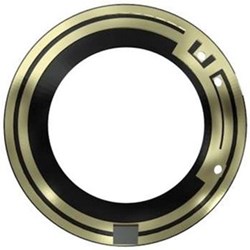New Entrant Joins Race To Develop Glucose-Sensing Contact Lens

Medella, a new startup tech company funded by the Thiel Foundation, has joined the likes of Google, Novartis, and Microsoft in the race to develop the first contact lens with glucose sensing capabilities. Medella developers say their lenses will differ from others on the market by requiring less calibration and having a longer useful life.
The Center for Disease Control (CDC) estimates that 29.1 million Americans, about 9 percent of the U.S. population, are living with diabetes. The current clinical standard for glucose monitoring is the finger-stick method, which is painful and inconvenient — two reasons that often lead to noncompliance with diabetes management.
Over the past few years, several technology giants have begun to develop devices that could make glucose sensing as easy as putting in a pair of contact lenses. Google introduced its prototype last year, announcing plans to partner with Novartis to develop the technology, and Microsoft’s research arm is experimenting with its own lens.
Medella is a much smaller fish, but one with fresh funding from the controversial Thiel Foundation, launched by Silicon Valley investor and PayPal entrepreneur Peter Thiel, which offers $100,000 grants to students willing to drop out of school to pursue a startup company. Grant recipient Henry Gandhi was a student at the University of Waterloo before founding Medella, a biotech company with about a dozen other employees.
Gandhi told MIT Technology Review that his company’s research is in the macro-prototype phase, and that its contact lens currently is big enough to fit an elephant. The Medella contact lens contains a biosensor that can communicate with a device attached to a collar or necklace, which can then communicate wirelessly with a smart phone. The company is developing its own app to manage data collected by the lens.
Medella plans to design a device that is customizable to suit the needs of both Type 1 diabetics, who need continuous monitoring, and type 2 diabetics, who prefer intermittent testing. Type 2 diabetics might be able to wave their phone in front of their eye and get an on-the-spot reading.
According to Gandhi, Medella’s prototype will differ from competitors by offering a longer-lasting lens that requires less calibration. Though Google claims that its prototype will be on the market within five years, Gandhi declined to comment when Medella might introduce its model.
“It will be very interesting to see where this industry goes in the next two to three years,” said Gandhi, “Maybe this is overly optimistic, but I think you only lose at this game if you stop trying.”
